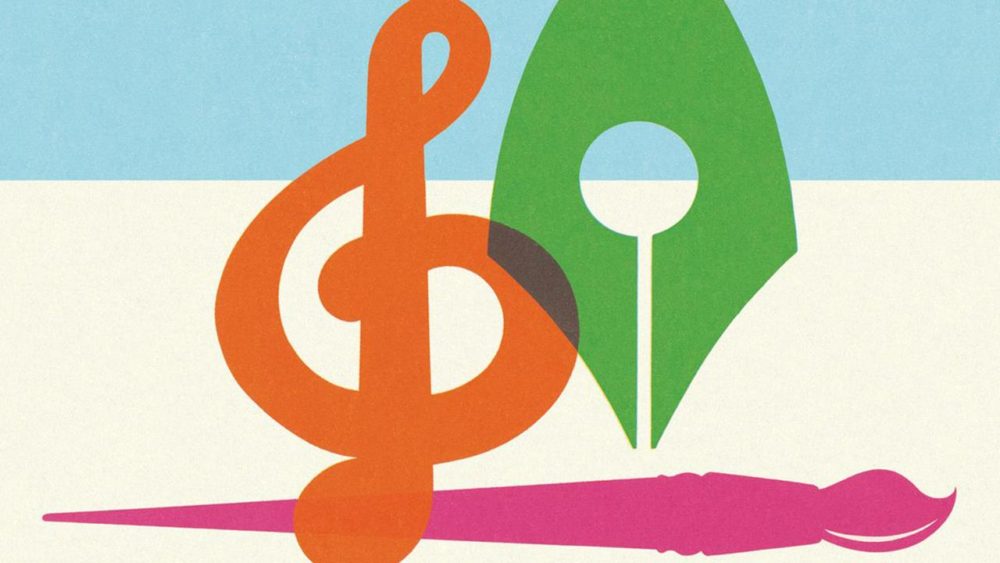CISCE Indian Certificate Of Secondary Education Class X, ICSE Guide
Updated November 2016
Prospective parents committed to an Indian education face a binary choice between CBSE and CISCE schools in the Emirates. The debate between concerned parents and educators on whether a CBSE or an ICSE system is better is unresolved with major strengths and weakness of each presenting parents with a critical choice of curricular from an early age. Transfer between the two curricular is not simple or recommended.
The Indian Certificate of Secondary Education Class X [ICSE – Class X] is a private sector alternative to the CBSE All India Secondary School Examination (AISSE), historically developed in association with Cambridge University. At the risk of simplification, it comes closest of the Indian curricular in breadth and focus to its International Baccalaureate international counterpart.
The examination is taken in ICSE schools and underwritten by the Council for the Indian School Certificate Examination [CISCE]. The ICSE – Class X is studied over a two-year period between Grades IX and X by students between the ages of 15 and 16.
The examination can only be sat in ICSE schools and is the only accepted route for entry to post-16 study of the Indian School Certificate [ISC] studied by students in ISCE schools between the ages of 17 and 18 in Grades XI to XII.
For parents committed to an Indian education, and seeking to provide the broadest range of undergraduate options for their children outside India, the ICSE has a critical edge over its CBSE counterpart, particularly for academic children. In a straight comparison, the ICSE offers greater breadth and density of education, is more rounded to include the humanities, and is more academic and stretching.
However for parents seeking post-18 options for their children in India, particularly in core disciplines in Engineering and Sciences, the decision on curricular is much more finely balanced. For weaker and mixed ability children, parents committed to their children returning to India may find the choice of curricular balanced in favour of CBSE schools.
India
The Council for the Indian School Certificate Examinations [CISCE], New Delhi
Studied over two years from age 15 and sat at age 16. The standard of the examination presupposes a school course of ten years’ duration (Classes I-X).
The CISCE conducts the final examinations for Class 10 every year in the month of March. Results are announced by the end of May.
All students must enter for a minimum of six subjects. These include three compulsory subjects: English, a second language, HCG, (history, civics & geography); two optional subjects drawn from a Group II list and one optional subject from a Group III list. Students must also complete a project of community service (“Socially Useful Productive Work”).
The Group II options include Mathematics; Science (Physics, Chemistry, Biology); Economics; Commercial Studies; a modern foreign language; a classical Language; and Environmental Science.
The Group III options include Computer Applications; Economic Applications; Commercial Applications; Art; Performing Arts; Home Science; Cookery; Fashion Designing; Physical Education; Yoga; Technical Drawing Applications; Environmental Applications and a Modern Foreign Language.
A school may not enter candidates for subjects, for the teaching of which the school makes no provision.
Core subjects are awarded on the basis of 20% coursework and 80% examinations.
Group II options are awarded on the basis of 20% coursework and 80% examinations
Group III options are awarded on the basis of 50% coursework and 50% examinations.
Community Service is internally assessed by the school based on 100% coursework.
Rote based learning is significant but the examinations and coursework are significantly weighted to critical thinking.
The pass mark for each paper is 35%.
The General consensus is that the ICSE – Class X is a harder curriculum in comparison with its broader All India Secondary School Examination (AISSE) counterpart.
Extensive materials are available, although there is no access to examinations for private candidates outside ICSE schools.
Grades range numerically from 1 to 9, 1 being the highest and 9 the lowest.
A “Very Good” grade is indicated by grades 1 and 2.
Grades 3, 4 and 5 indicate a “Pass with Credit.”
Grades 6 and 7 indicate a “Pass.”
Grades 8 and 9 are classified as a “Failure.”
The standard reached in Community Service [“Socially Productive Work”] is graded A, B, C, D or E (Grade A being the highest and E the lowest.)
Grades A, B, C or D indicate a “Pass” and E a “Failure.”
ICSE schools tend to be more expensive than their CBSE counterparts because of both the broader subject offer demanded by the syllabus and its perceived relative prestige.
A transfer to the alternative CBSE syllabus is possible given the density and breadth of curriculum, although it is not recommended.
Transfer between other ICSE schools is theoretically much simpler, although the ICSE schools have significantly greater individual latitude in their methodology and range of subject provision and this, combined with the significant internal marking of coursework, will make a transfer complex.
The Indian Certificate Of Secondary Education Class X [ICSE – Class X] enables students to progress to the Indian School Certificate Examination [ISC – Class XII) in ICSE schools. Where the CBSE no longer offers Standard X exams for students continuing on to class XI, the CISCE does – and this offers a greater degree off choices with students wishing to transfer to alternative schools, whether CISCE, CBSE or alternatives.
As with all Class X examinations, actually passing (a relatively simple task) is less relevant than the grades scored in each paper which are likely to be analysed both by employers and sixth form providers.
The ICSE Class 10 has historically enjoyed a better reputation than its CBSE counterpart, partially because of its balance of examination and coursework. The CISCE has always been committed to pushing as much latitude in the method and substance of delivery back to schools so they can best match provision to the individual needs of children. At the same time, in core subjects, it has preserved the 80% weighting to examination performance to protect its reputation for academic excellence. As the CBSE has moved to its radical new model of CCE based Class X delivery, many feel the ISCE retains an academic edge, although in terms of subject choice it is now at least arguable that (in the best CBSE schools able to deliver the full range of options), the CBSE is overtaking it. Bottom line is that the ICSE variants are better for more academic children – and certainly those who thrive under the pressures of examinations.
Low - Internationally, the ICSE Class X, although arguably having the academic edge over the CBSE equivalent, is generally perceived to fair (significantly) less well against international alternatives including the IGCSE and International Baccalaureate Middle Years Programme [IB MYP]. As a packaged product, unlike the IGCSE, the ICSE Class X actually bears better comparison with the IB, particularly in its service component and structured breadth.
The devil is in the detail, and we feel that top tier ICSE Class 10 scoring in individual papers deserves more respect than perhaps it is afforded. It also scores much more highly in the general standard of English demanded in order to achieve highly than its CBSE counterpart.
High value in India, particular for those scoring highly, although the board lacks the dominance and the ubiquity of the CBSE.
Has relatively limited value outside India except in the Sciences.
With global competition, it is arguable that the historic strength of Class X examinations from any syllabus is diminishing as the expectation standardises that students will continue to Class XII.
For universities, the Class X examinations are relevant for the most part only in defining/certifying basic skills in English and Mathematics. It is very likely, however, that students will be required to undertake further examinations/tests in English to meet the entrance requirements of international universities. This is true both for students seeking later degree study in the Arts, Sciences or Humanities.
• ICSE – Class X provides significantly better balance between Sciences, Arts and Humanities. For students seeking an Indian syllabus, committed to later degree based study in the humanities, the ICSE curricular are significantly better (we cannot recommend the CBSE for grounding students in the Humanities)
• ICSE – Class X provides a higher level of English language provision than the AISSE. English is the compulsory language of instruction (CBSE approves both English and Hindi language as the medium of instruction).
• Development in conjunction with Cambridge University, and historical accreditation by the French Board of Examination, has given it better recognition than the CBSE curriculum internationally.
• The later Class XII Indian School Certificate is recognized by universities in the UK and applicants are not required to obtain ‘A’ level qualifications for entry. This is not automatically the case for the CBSE.
• More grounded and applied than the historically theoretical book-bound/centric approach of the CBSE – although the CBSE is changing and catching up quickly
• ISCE has achieved significantly greater recognition internationally.
• Syllabus far less restrictively tied to careers in engineering and medicine leaving options open to students.
• Ultimately an ICSE based curriculum may eventually disadvantage students leaving school after Grade XII seeking entrance to the Joint Entrance Examination (IIT-JEE), the All India Engineering Entrance Examination (AIEEE) and the All India Pre Medical Test (AIPMT). These are naturally aligned with the CBSE and students set on this course should weigh their decision in the balance.
• The CBSE is government backed and significantly more recognised in India
• The curriculum is less standardised than the CBSE making transferring between schools more difficult. Given changes to the CBSE, however, which now effectively tie children into the same school to Grade XII this is less of an issue.
• Weaker and mixed ability children may struggle to achieve higher grades, although the Grade XII examinations ultimately count.
• There is no guarantee that ISCE grading in individual papers will be weighted by Universities or Employees more highly, and the CBSE presents the opportunity to earn higher scoring.
• The trend of students securing increasingly high grades under the CBSE, in conjunction with artificial cut-offs by leading Indian universities including Delhi, significantly disadvantages ICSE students.















































![CISCE Indian School Certificate [ISC] Guide](https://schoolscompared.com/wp-content/uploads/2016/04/AppleComp-316x296.jpg)














Leave a Response